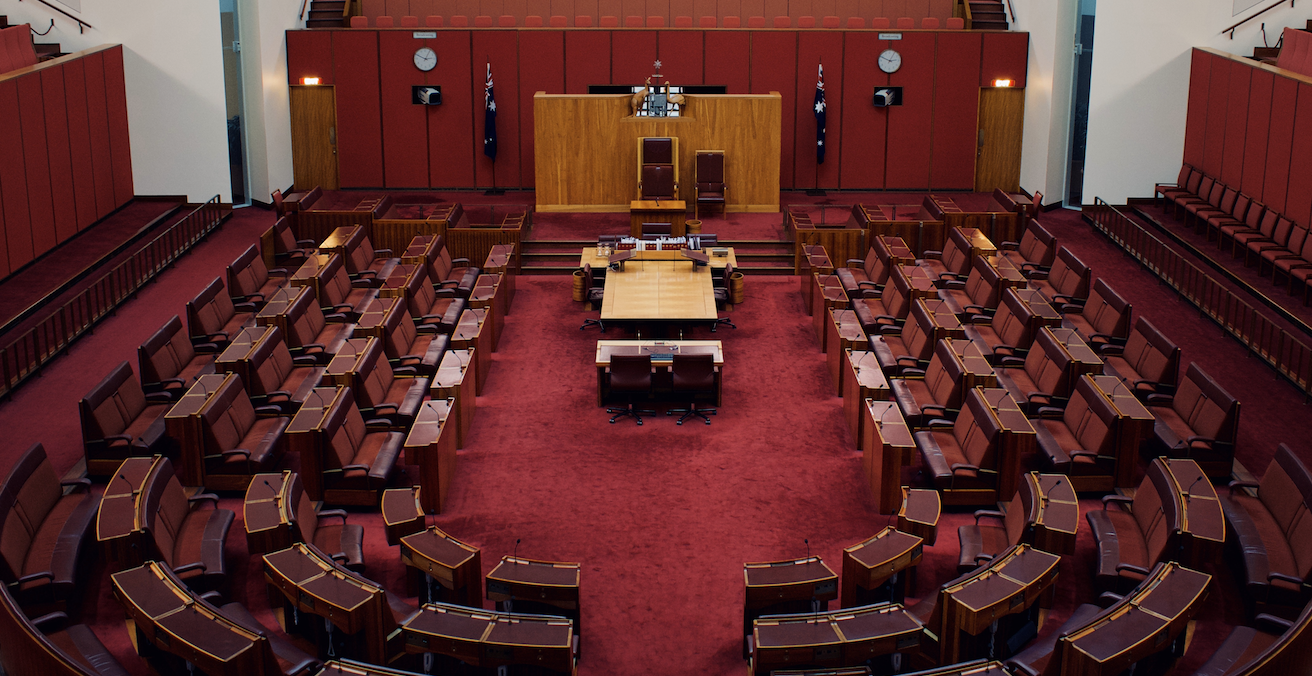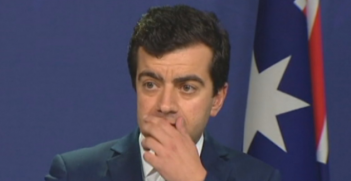Minor Parties and the Implications for Australian Foreign Policy

It is likely Australia’s minor parties will retain considerable representation in the Senate after the federal election on the 18 May. However, it is unlikely they will considerably reshape the future direction of the country’s foreign policy.
The popularity of minor parties has been on an upward trajectory in recent years. Voters have demonstrated a willingness to support candidates from outside the established Labor, Liberal and National parties in rising numbers, especially in Senate contests.
The Senate is important in the Australian system of government. It has almost the same powers of the lower house and can exert significant influence on government policy. The Senate is also the chamber in which minor parties have been able to win parliamentary representation, primarily due to the proportional system of voting used to elect candidates to the chamber. How intense the competition for upper house seats has become is evident in the number of parties contesting Senate elections. From less than 10 parties in 1984, some 50 parties contested the 2016 election.
Within the context of such diversity and vigorous competition, it is timely to look at the key minor parties that are expected to be represented in the Senate from 1 July this year, with a specific focus on their foreign policies and what it will mean for the next federal government. Before doing so, however, it’s important to identify how minor parties in the past have approached the issue of international relations in the Senate.
Early minor parties and foreign policy
Minor parties are not new in the Senate. Indeed, in the post-war period, there have been a number of minor parties that have focused on influencing foreign policy. The Democratic Labor Party (DLP) emerged in the early 1950s following a split in the Australian Labor Party (ALP) over the issue of perceived communist influence. The DLP’s concerns about communism were also reflected in the party’s broader policy platform.
The party was committed to the non-recognition of the People’s Republic of China and was highly sceptical of any attempts to work constructively with the country. The DLP was also deeply concerned about the impact of Russia on global affairs. It even advocated for Australia to have a nuclear “deterrent” against China and Russia.
When the DLP disintegrated in the mid-1970s, minor parties that won Senate representation were not as enthusiastic to focus on foreign policy. For example, the Australian Democrats sought to position themselves as a “watchdog” in the political system and focused on domestic policy rather than international relations.
In the 1980s, the Nuclear Disarmament Party (NDP) emerged in response to the Hawke Labor Government overturning Labor’s anti-uranium mining policy. The NDP was significant not only for launching the political career of Midnight Oil frontman Peter Garrett (who became the face of the party but could not win a parliamentary seat) but also because it won Senate representation in 1984 and 1987. While in parliament, the NDP advanced policies that sought to influence international relations, especially with France (which continued its nuclear tests in the Pacific).
Foreign policies of contemporary green parties
Following the collapse of the NDP in the late 1980s, the next tranche of minor parties elected to the Senate began to display polarised views of foreign relations.
The WA Greens and Australian Greens – first elected to the Senate in 1993 and 1996, respectively – advanced a socially progressive platform which also promoted cosmopolitanism. The WA Greens joined the Australian Greens in 2004. Since then, the Australian Greens have advanced a foreign policy agenda that has been critical of the major parties, especially concerning Australia’s relationship with the United States.
This was most famously demonstrated when, in 2003, Greens senators interjected during President George W Bush’s speech in the Australian Parliament. Of great concern at the time was the imprisonment of Australian citizens by the United States in Guantanamo Bay on the basis of allegedly supporting terrorist organisations.
The Greens have also been strong advocates for the role the United Nations can play in international affairs, especially on matters concerning security and human rights. Indeed, the Greens refer to the United Nations Charter and Declaration of Human Rights as a key component of their international relations policy.
Foreign policies of the non-green parties
The cosmopolitan approach advanced by the Greens contrasts with the policies of Pauline Hanson’s One Nation (which was first elected to the Senate in 1998, then again in 2016) and the United Australia Party (UAP) led by Clive Palmer.
One Nation has often been critical of the foreign policies of successive federal governments. Of particular concern has been free trade agreements which the party believes unfairly disadvantage domestic firms. The party has also been concerned about the impact of the United Nations on the capacity of governments to set national policies and has called for an “Aus-exit” from the UN, a concept inspired by Brexit. The party has also previously railed against existing policies concerning refugees and national security.
The UAP has less dramatic foreign policy goals, but there are some common elements shared with One Nation. In particular, the UAP is concerned about foreign ownership of firms and is also apprehensive about the potential of China to influence domestic policy. Like One Nation, the UAP has also expressed concern about refugee policy, especially regarding implications for national security.
What to expect
It is expected that both Green and non-green parties will maintain Senate representation following the election. This raises the question of what are the potential implications of the polarisation between these minor parties on Australian foreign policy?
Traditionally, minor parties in Australia have focused on achieving domestic-oriented policy outcomes, even though they may have made their foreign policy demands prominent. In the contemporary era, parties such as the Greens and One Nation have sometimes attracted attention for strong positions on international relations. Yet their focus has often remained on influencing national policy, ostensibly with the focus on consolidating their presence in the Senate.
Furthermore, as the major parties’ internationally focused policies share common elements, especially in relation to alliances with the United States, it’s highly unlikely significant changes will be made to Australia’s foreign policy in the next parliament. Despite the rising electoral support enjoyed by the minor parties, it is expected that Australia’s foreign policy will continue on the path both major parties have followed in the post-war period.
Dr Zareh Ghazarian is a senior lecturer in Politics and International Relation in the School of Social Sciences at Monash University. His research interests include political parties, public policy, political knowledge, politics and the media, and political leadership. He is the author of “The Making of a Party System: Minor Parties in the Australian Senate.”
This article is published under a Creative Commons License and may be republished with attribution.





